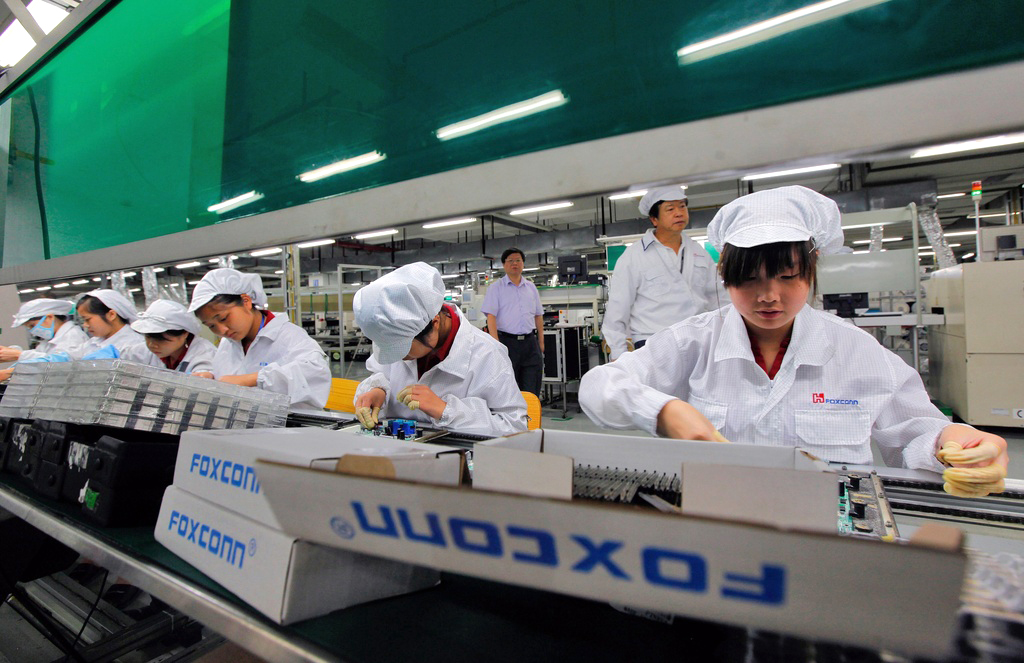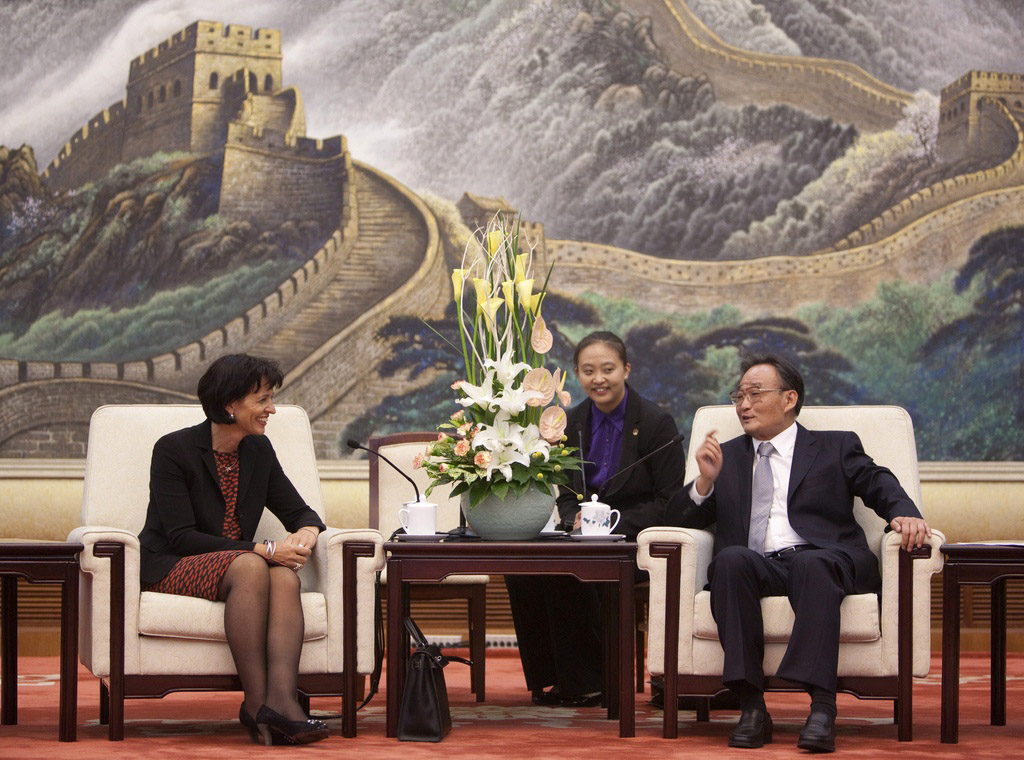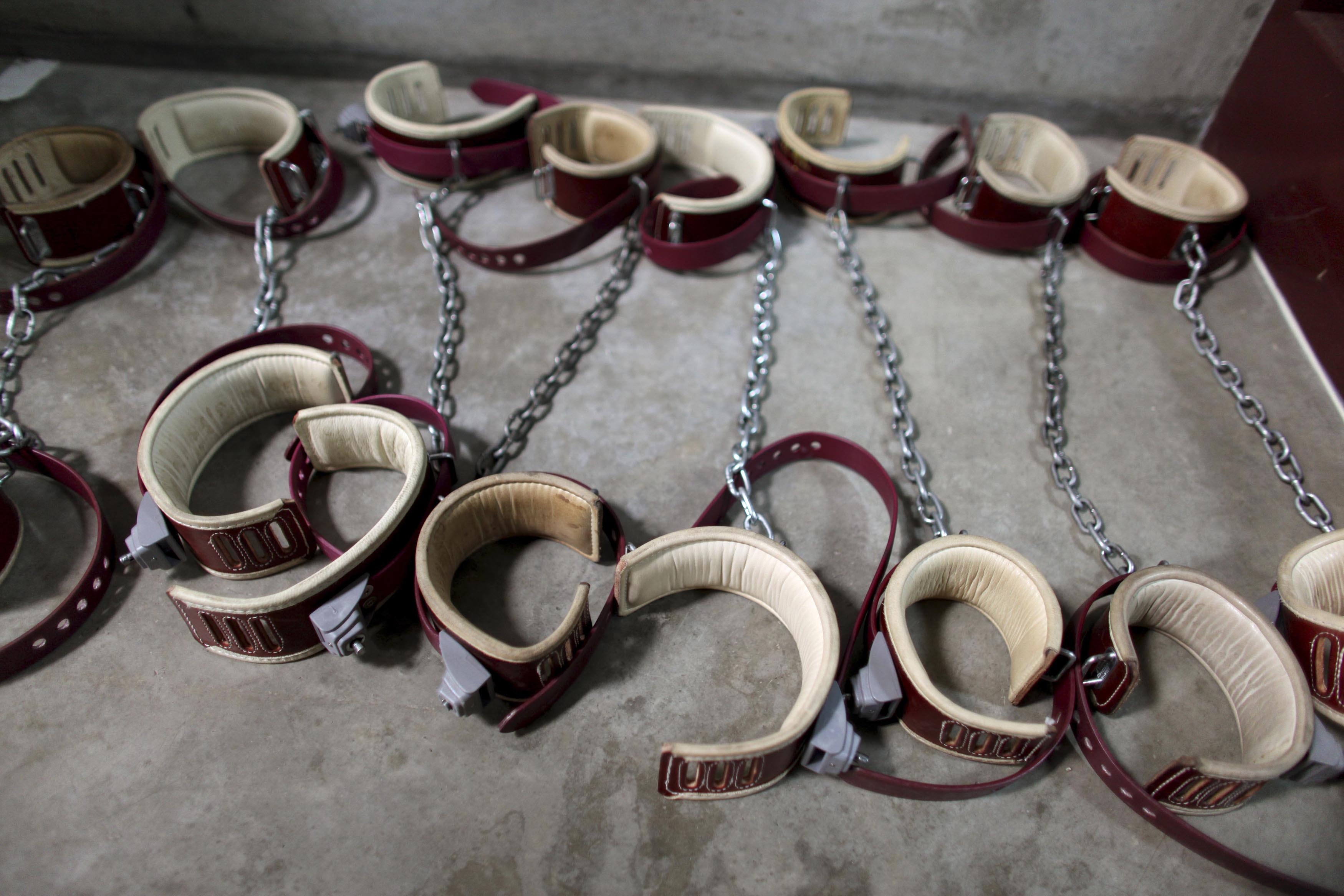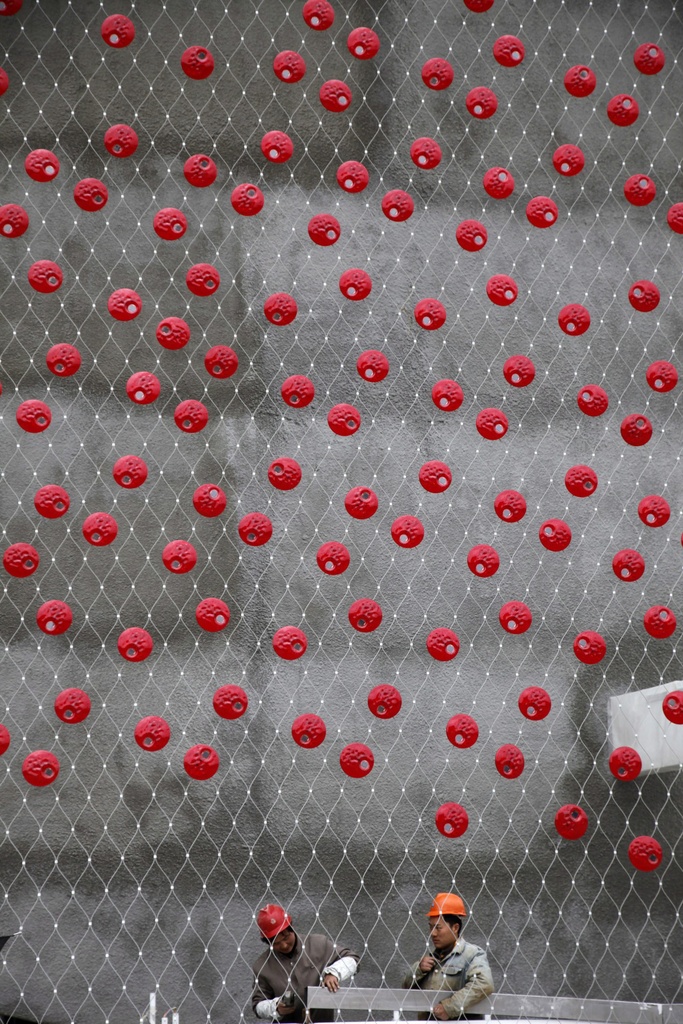“Switzerland needs to show courage”

Switzerland will shortly be starting negotiations with China designed to produce a free trade agreement, something the Swiss have been eagerly pushing for.
swissinfo.ch spoke to Thomas Braunschweig, responsible for trade policy at the Berne Declaration, one of the non-governmental organisations to have expressed concerns.
As the fastest growing global economy, China represents an increasingly important market for Switzerland. It is already Switzerland’s third-most important trading partner, behind the United States and European Union.
A feasibility study carried out earlier this year suggested that Swiss gross domestic product (GDP) could be boosted by 0.23 per cent and industry could make annual savings of around SFr290 million ($297 million) as trade barriers are lifted. If the agreement is reached, it will be the first between China and any European country.
But a number of charities and development aid groups – Alliance Sud, the Berne Declaration, the Society for Threatened People and the Swiss-Tibetan Friendship Society – warned on Tuesday that it was unethical for Swiss companies to benefit from poor human rights standards in China.
swissinfo.ch: How do you regard the prospect of the Free Trade Agreement (FTA) with China?
Thomas Braunschweig: We are not against the negotiations, which will give Switzerland some room to encourage China to pledge itself to respect human rights. What we are demanding is that binding clauses on human rights should be included in the agreement, and that there should be a preliminary study about the impact that an FTA could have on ordinary people’s economic and social rights. Depending on its findings, such an assessment would show whether negotiations can be started or not.
swissinfo.ch: As far as human rights are concerned, what specific improvements could this bring about?
T.B.: We must be realistic. In the context of a free trade agreement, Switzerland will certainly not be able to bring about any substantial improvement in the human rights situation in China. Obviously the Chinese side will not allow itself to be put under pressure.
But our country can make a contribution, for example by guaranteeing that it will not import Chinese products manufactured under conditions which fail to respect human rights or the core norms laid down by the International Labour Organisation (ILO). Or by monitoring the large Swiss firms working in China, particularly in the mining and trading of raw materials, to ensure that they do not benefit from the favourable conditions in the country to trample on human rights for the sake of low cost production.
swissinfo.ch: Has Switzerland already introduced such measures in the framework of the FTA negotiations?
T.B.: As far as the assessments are concerned, we have asked the State Secretariat for the Economy (Seco) several times to make such studies, for example in the context of negotiations with Vietnam and India. But the government has always refused. It has argued that such analyses are too costly and methodologically not reliable enough. In other words, it has found relatively simple excuses, because the various United Nations bodies involved in human rights have been asking for such analyses for more than ten years now.
As for binding clauses on human rights, Switzerland, unlike the European Union, has never included any in its agreements. The only thing this country does is to include a reference to the Universal Declaration of Human Rights as part of the preamble, which is not binding, and this makes it pointless. This is a cowardly strategy by the government.
swissinfo.ch: Switzerland already has very close trade ties with China. How does it approach the question of human rights?
T.B.: There’s a dialogue between Switzerland and China at government level aimed at encouraging respect for human rights [the Chinese-Swiss dialogue on human rights]. It focuses on the death penalty, respect for minorities, freedom of religion and the economy and human rights, stressing the social responsibility of companies. For example, when China was last evaluated by the UN, Switzerland was one of the only countries to speak out about the rights of the Uighur minority. A very sensitive topic.
But this discussion between Switzerland and China is not really enough, since we haven’t seen any concrete results.
swissinfo.ch: If Switzerland includes binding clauses, is there a danger that it will come under pressure from China?
T.B.: Probably. We saw the pressure put on Switzerland over its acceptance of the two Uighurs from Guantanamo. [In March Switzerland gave refuge to two brothers from the Chinese province of Xinjiang released from the US prison in Guantanamo, despite China’s claim that they were members of a terrorist organisation.] More recently we have seen the attempt to blackmail Norway over the award of the Nobel prize to the imprisoned dissident Liu Xiaobo.
It’s a problem to reach an agreement with a country which behaves like that. How would Switzerland react to the pressure? Would it stand by its convictions or would it stay silent for the sake of the economy? In any case, Switzerland needs to show courage, it mustn’t put the economy ahead of human rights.
Speaking to swissinfo.ch, Ambassador Christian Etter, head of the Special Foreign Economic Service Division of Seco, made the following points regarding the NGO’s calls:
The Federal Council (government) takes human rights and the core labour standards of the ILO very seriously.
Switzerland is in dialogue with China and cooperates in different projects on these issues, including environmental protection and promoting corporate responsibility, clean production and good labour relations in Chinese companies.
The FTA with China will be designed to complement and reinforce these efforts. It will strengthen economic relations and contribute to sustainable development.
The provisions of the agreement, including the preamble laying down the guiding principles for the application of the agreement as a whole, will make sure in a useful way that rights and obligations set out by international organisations like the ILO are not diminished.
International standards
on human rights, labour and corporate social responsibility are worked out by agreements in the framework of multilateral bodies, like the UN, the ILO and the OECD.
Switzerland recognised the newly established People’s Republic of China on January 17, 1950, one of the first Western states to do so. It simultaneously withdrew recognition from the Republic of China (Taiwan).
Contacts were not initially close, because of internal turmoil in China and the Cold War.
Bilateral relations between Switzerland and China have developed briskly since 1979 when Deng Xiaoping launched his policy of liberalisation and reform.
Around 300 Swiss firms with some 700 branches are currently working in China.
There are about 3,300 Swiss citizens resident in China.
Since 2002 China, including Hong Kong, has been Switzerland’s most important trade partner in Asia. Swiss exports totaled SFr5.2 billion last year (10% down on 2008), while imports to Switzerland amounted to SFr4.9 billion (down 4%).
In the world as a whole, China is the third-biggest exporter to Switzerland behind the EU and the US.
China is Switzerland’s fourth-biggest export market after the EU and the US and Japan.
China’s population of 1.33 billion is increasingly important for Swiss tourism.
Translated from French by Julia Slater

In compliance with the JTI standards
More: SWI swissinfo.ch certified by the Journalism Trust Initiative





You can find an overview of ongoing debates with our journalists here. Please join us!
If you want to start a conversation about a topic raised in this article or want to report factual errors, email us at english@swissinfo.ch.